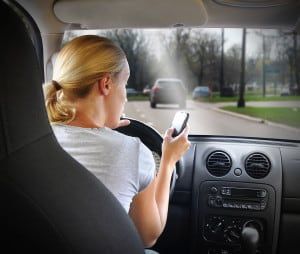 Imagine you’re driving down the street after having a few drinks at a bar. You were just hanging out with friends, having a good time, laughing, playing darts, shooting pool. The fun only lasted a couple of hours and then it was time to go home. So, you got into your car, started it, and headed toward home. Next thing you know, an officer is pulling you over. Of course, you start panicking at first, because you’ve been drinking. But, you calm down when you remember you were only out for a couple of hours and you didn’t drink very much. Surely, everything will be fine.
Imagine you’re driving down the street after having a few drinks at a bar. You were just hanging out with friends, having a good time, laughing, playing darts, shooting pool. The fun only lasted a couple of hours and then it was time to go home. So, you got into your car, started it, and headed toward home. Next thing you know, an officer is pulling you over. Of course, you start panicking at first, because you’ve been drinking. But, you calm down when you remember you were only out for a couple of hours and you didn’t drink very much. Surely, everything will be fine.
As it turns out, everything is not fine. You were swerving and missed a stop sign, so the officer runs through the standard roadside sobriety tests for a suspected drunk driver. Then, she has you breathe into a breathalyzer to figure out just how drunk you are. You’re barely over the legal limit of 0.08 BAC and you get arrested, your car gets impounded, and a legal and financial nightmare begins.
Now, imagine you had a little device attached to your key ring that can tell you how drunk you are before you even leave the bar. It works with an app you’ve downloaded onto your smartphone and can show your blood alcohol content (BAC) levels, give you data about your intoxication over time, and call you a cab when you’re too drunk to drive.
These devices exist, but how accurate are they? Compared to a car breathalyzer, they seem small and gadgety. In some reviews, the devices rank right up there with larger, more traditional breathalyzers found in cars or in the hands of law enforcement officers. In other reviews, there are mixed results. Taking the chance on a device that may not work could land you in a lot of trouble.
As the saying goes, “good things come in small packages,” and if a breathalyzer gadget helps keep you from a drunk driving conviction and a car breathalyzer requirement, then these devices are certainly beneficial. But, as the other saying goes, “everything in moderation,” like alcohol, is the best way to avoid a drunk driving incident.

